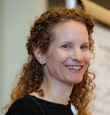Cultivating Programs for Next Generation Donors
Fifteen years ago, as Charles Bronfman and his late wife Andy were ushering Birthright Israel into its toddler years, they inherently understood that next generations would have new ideas about Jewish life and new energy to contribute to it. One strategy they supported began in 2002, when Jeff Solomon, president of the Andrea and Charles Bronfman Philanthropies (ACBP), hired me to encourage next generation donors to bring their own ideas and resources to bear on the Jewish world.
 After spending a few months surveying the landscape and exploring best practices across the country, we set up a collaborative giving process for next generation donors who wanted to give beyond tables to benefits by more directly funding critical issues in the Jewish world. With initial financial support from ACBP, the Samberg Family Foundation, Righteous Persons Foundation, and the Nathan Cummings Foundation, I helped to launch a next generation giving circle – called Natan – initially for Generation Xers, largely financial-types in New York whose members wanted to support start-ups catalyzing new Jewish life in North America and Israel.
After spending a few months surveying the landscape and exploring best practices across the country, we set up a collaborative giving process for next generation donors who wanted to give beyond tables to benefits by more directly funding critical issues in the Jewish world. With initial financial support from ACBP, the Samberg Family Foundation, Righteous Persons Foundation, and the Nathan Cummings Foundation, I helped to launch a next generation giving circle – called Natan – initially for Generation Xers, largely financial-types in New York whose members wanted to support start-ups catalyzing new Jewish life in North America and Israel.
We then founded Grand Street, a network for Generation Yers inheriting opportunities to participate in their families’ philanthropy. These men and women wanted to honor their parents’ and grandparents’ legacies and commitment to the Jewish community, while also bringing about their generation’s new responses to contemporary Jewish life.
Both of these experiences taught us about the power of the peer group as a place for next generation donors to learn about themselves, as well as find a training ground to learn about the nonprofit, Jewish, and philanthropic worlds. We saw how Grand Street members were willing to take risks and explore new ideas together. These members traveled across the globe to learn from other Jewish communities and social entrepreneurship activities. Subsequently, we helped Grand Street members launch the Slingshot guide to Jewish innovation and later the Slingshot Fund. We watched the members challenge each other to become more strategic, as they aimed to fund from both the head and the heart.
Ultimately, these initial ACBP investments had double bottom line returns. Our programs engaged next generation donors, and those donors in turn leveraged ACBP’s contributions by allocating more than $12 million to engage other next generation Jews. Eventually, both programs became self-sustaining nonprofit entities and continue to thrive today.
As we learned how to work with Generations X and Y, and earners as well as inheritors, philanthropic families and foundations approached us for help engaging their own adult children. With Jeff Solomon’s encouragement, we set up an in-house philanthropic service called 21/64, and served next generation donors, families and their advisors from a range of backgrounds, as what we had learned in the Jewish world had broader implications.
In 2008, after ACBP’s spend down was announced, the trustees generously provided 21/64 with a runway that enabled it to eventually reach sustainability and continue as an independent entity called 21/64 Inc, a nonprofit practice specializing in next generation and multigenerational engagement in philanthropy and family enterprise.
To help us achieve sustainability, ACBP provided 21/64 with financial support to hire a new senior professional so that it could transition from a wholly underwritten program to a 501(c)(3) with diversified revenue streams. ACBP also gave 21/64 the intellectual property it created while it was a program at ACBP, including interactive tools designed to be catalysts for next gen donors, their families, and advisors. During this massive growth phase, ACBP also lent 21/64 beautiful office space and support services.
As 2014 came to a close, 21/64 celebrated its independence with sustainable earned revenue streams. It transitioned completely out of ACBP, and I became the executive director of the new entity, joined by our other program staff, who moved from ACBP to 21/64 including Danielle Oristian York, Barbara Taylor, and Sara Finkelstein.
With this modest success under our belts, we began 2015 with three particular areas of attention. The first is to raise funds to support our next generation programs, including Grand Street and our new #NextGenDonors program for 21-40 year olds from diverse backgrounds. The Joyce and Irving Goldman Family Foundation provided an interim grant to sustain these programs, which remain at the heart of 21/64’s founding and mission, and will only continue through foundation support, which closes the gap between our costs and participant fees.
Secondly, we aim to be a thought leader in the space and are building new tools, a book, and a new training – the Art of Facilitation – all the while supporting families who are engaging the next generation. Lastly, we are considering how to add staff capacity and expand our board of directors as we grow our newly launched organization.
As I type this blog, I sit just steps away from the ACBP team, whose belief in the next generation and passion for innovation set the stage for what 21/64 could become. It is powerful to watch ACBP’s legacy become part of the philanthropic landscape and I feel grateful to have traveled all this way in the company of such people. We are humbled by how far we have come and mindful upon whose shoulders we stand.
This is the twenty-fourth post in the "Making Change by Spending Down" series, produced in partnership by The Andrea and Charles Bronfman Philanthropies and GrantCraft. Please contribute your comments on each post and discuss the series on twitter using #spenddown. See related content below for more posts in this series. Photo courtesy of Slingshot.

